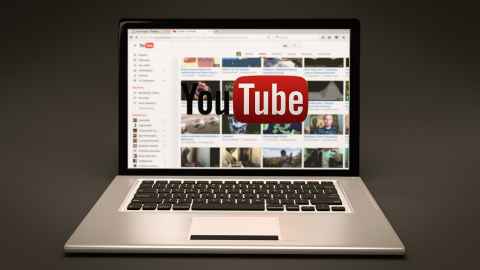The WHO Vaccine Safety Summit – from someone who was actually there
16 January 2020
Opinion: A YouTube conspiracy theorist claims the World Health Organization questioned the safety of vaccines at a recent summit. Dr Helen Petousis-Harris attended, and debunks the new conspiracies.

The conspiracy
I saw a new conspiracy theory flying around the other day. According to the conspiracy (that seems to originate from Del Bigtree), the World Health Organization have been ‘caught on camera’ questioning the safety of vaccines.
Gosh, this sounds as though someone was a mole at a secret meeting and filmed scientists admitting vaccines were not safe! Could this possibly be true?
Short answer – NO!
The facts
Actually, the event in question was livestreamed in the public domain. You see, the cameras (there were several and I hoped none caught me in the background slouching after lunch) were contracted by the WHO in order to live stream the entire two-day Vaccine Safety Summit to the world – or at least whoever on the planet was interested.
What was the summit?
The summit was an event to bring vaccine safety experts together, old and new, to discuss what had been learned in the last 20 years, new frontiers and the plans for global vaccine safety monitoring in the next decade. This is not because the WHO think vaccines aren’t safe. This is because the WHO monitor vaccines constantly throughout the life of the product and beyond to ensure they are very safe – knowledge marches on, and scientific enquiry is at the heart of this. I think it is fantastic that the science of vaccine safety is taken this seriously.
The topics during the two-day event were generally:
- Day one – Global Vaccine Safety Blueprint 2.0. This is the WHO strategy for vaccine safety to 2020. The document has been in the public domain for months, and feedback is invited.
- Day Two – Safety issues reviewed during the early 21st century, novel vaccine issues, new vaccine technologies and delivery mechanisms, frontiers in methodological approaches to monitor vaccine safety and vaccine confidence
If you think this all sounds like your jam, then watch the meeting from the source and in context, not a selectively edited version on YouTube by a conspiracy theorist.
An example of twisting the facts
The meeting footage is being used to manufacture new misinformation. In many examples I have seen on Twitter and other platforms, a statement by a scientist that highlights something that is not yet understood is used to imply therefore there is nothing understood. This is like saying scientists are not exactly sure what gravity ‘is’ therefore gravity does not exist, which is of course ridiculous.
I am not going to watch an hour of conspiracy theories on YouTube about a meeting that I was at, but I did check out the first few minutes of the creatively edited clip on YouTube. In the conspiracy version footage, there is a snippet of Professor Heidi Larson (The London School of Hygiene and Tropical Medicine) speaking about vaccine confidence, a topic on which she is expert. These few minutes are an example of just how far an anti-vaccine activist will twist the intent of someone’s words, and there is another hour of this that follows. Here, Professor Larson makes a statement about how little teaching is provided in medical school about vaccines. She is referring to the challenges some health professionals have when responding to complex questions about vaccines.
This is true, and my colleagues and I frequently moan about how medical students don’t get enough about vaccines - but that is not quite the whole story. You see, medical students may take one of a vast number of pathways after their basic training. You don’t need to cram a bunch of stuff about vaccines into your head if you are going to specialise in dermatology or orthopaedics. A medical student is no expert on vaccines (or any other medical speciality), but they know (at least should know) how to find out more if they need to.
What is important here is that medical students who go down the road of infectious diseases, public health, or primary health care do learn about vaccines, and some go on to become vaccine experts.
Health professionals who are not sure about some aspect of vaccines can seek expert advice.
Who is a vaccine expert?
I made a checklist to illustrate the components of a vaccine expert. The summit meeting attendees fulfil these requirements.
- Do you adhere to the scientific methods?
- Do you have any formal training (i.e. a research degree) in a relevant science such as microbiology, immunology or infectious diseases? If not, have you acquired expertise in relevant topics during your career?
- Are you engaged in empirical assessments (research) of vaccines and is your research published in respected journals?
- Have you been doing this for years? Do you have membership in relevant professional societies or committees?
If so, you are probably an expert on vaccines.
Things that do not automatically make you an expert on vaccines:
- Experience in a lab
- Loads of publications in irrelevant or predatory journals
- A medical degree
- The title 'Dr' or 'Professor'
Real experts do studies to disprove their ideas - and change their minds based on the facts.
Dr Helen Petousis-Harris is a vaccinologist and senior lecturer in the University of Auckland’s Faculty of Medical and Health Sciences.
This article reflects the opinion of the author and not necessarily the views of the University of Auckland.
Used with permission from SciBlogs, The WHO Vaccine Safety Summit – from someone who was actually there 14 January 2020.
Media contact
Nicola Shepheard | Media adviser
DDI: 09 923 1515
Mob: 027 537 1319
Email: n.shepheard@auckland.ac.nz